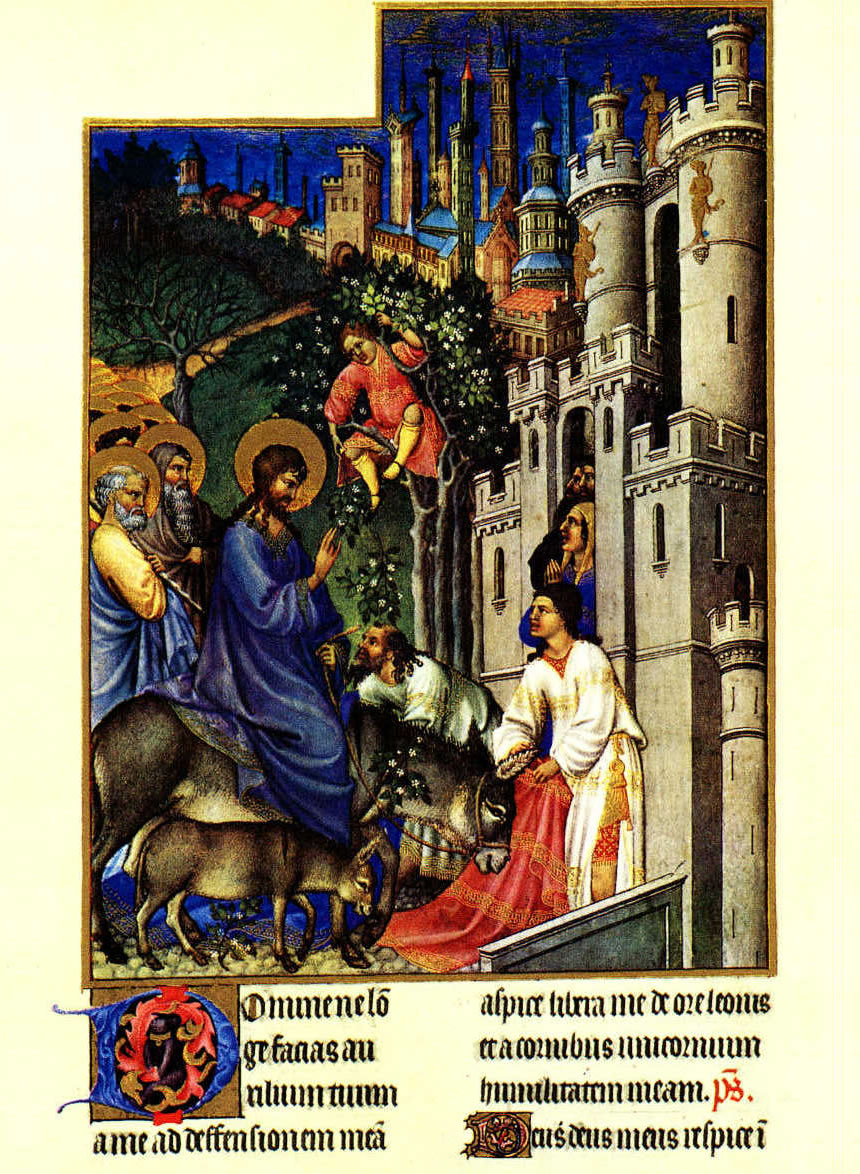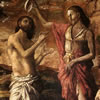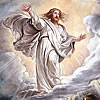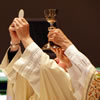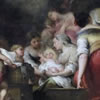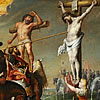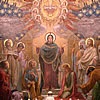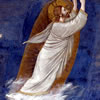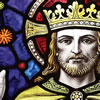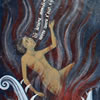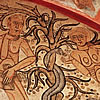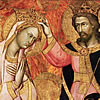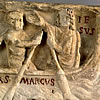Zacchaeus and Eucharistic Adoration
Eucharistic Adoration is the practice of adoring Jesus who is present in the Blessed Sacrament. But what does the story of a tax collector and Eucharistic Adoration have in common? This article will try to show how Eucharistic Adoration has the same effect on us, the same way Christ had an effect on Zacchaeus.
Let us first recount the story of Zacchaeus:
He came to Jericho and intended to pass through the town. Now a man there named Zacchaeus, who was a chief tax collector and also a wealthy man, was seeking to see who Jesus was; but he could not see him because of the crowd, for he was short in stature. So he ran ahead and climbed a sycamore tree in order to see Jesus, who was about to pass that way.
When he reached the place, Jesus looked up and said to him, “Zacchaeus, come down quickly, for today I must stay at your house.” And he came down quickly and received him with joy. When they all saw this, they began to grumble, saying, “He has gone to stay at the house of a sinner.”
But Zacchaeus stood there and said to the Lord, “Behold, half of my possessions, Lord, I shall give to the poor, and if I have extorted anything from anyone I shall repay it four times over.” And Jesus said to him, “Today salvation has come to this house because this man too is a descendant of Abraham. For the Son of Man has come to seek and to save what was lost.”Luke 19:1-10
We have to first remember that tax collectors are Jews themselves but they are paid by the Romans to collect taxes from fellow Jews. Because they helped the romans, the Jews considered tax collectors as traitors. Not only that. They were also considered extortionists because they would charge more than what the law warranted and kept the difference for themselves.
In this story, we have a short fellow who climbed a tree because he wanted to see Jesus. For what his reasons are, we are not told. All we know is he is a tax collector, and that he was short. What we can assume about Zacchaeus is that he was quite smart. He knew were Jesus was going to pass and made a plan to be up a tree where Christ would pass.
We can also assume Zacchaeus knew about Jesus’ reputation or else he wouldn’t be braving the crowd that was there. What is interesting is that Jesus calls him by name. A person’s name is the sweetest thing to his ears and Zacchaeus heard his name called by no less the Christ himself. He must have felt proud, and elated, and overjoyed at that moment. We are told,“he received Him (Jesus) with joy.”
At the request of Jesus, Zacchaeus prepared his house for Our Lord. We assume Christ went with Zacchaeus to his house, but after that we don’t read about Jesus doing anything except speaking about how salvation has come into“this house.” We may be lead to believe that Christ was not doing anything at all, but there is. His mere presence must have affected Zacchaeus so much that he must have felt so sinful and remorseful to have promised to give to the poor and return anything he got using extortion – and even repay it with interest.
It is the mere presence of Christ that creates a clean heart in Zacchaeus. It is the mere presence of Christ that initiates the miracle in the tax collector. There is now an inner desire in this tax collector to do nothing but good. Somehow he is inspired to lead a better life because it is pleasing to God.
When we go for Eucharistic Adoration, we are advised to be silent. Some books would say we don’t even need words: simply looking with love at the Blessed Sacrament is enough. This used to bother me. I was brought up saying formula prayers like the Our Father, the rosary, the angelus, etc. It seemed there was something missing if I didn’t use words to pray. But I was missing the point. The point in Eucharistic Adoration is not the words, but being in the presence of God. In Luke’s Gospel we read:
As they continued their journey he entered a village where a woman whose name was Martha welcomed him. She had a sister named Mary [who] sat beside the Lord at his feet listening to him speak.
Martha, burdened with much serving, came to him and said, “Lord, do you not care that my sister has left me by myself to do the serving? Tell her to help me.”
The Lord said to her in reply, “Martha, Martha, you are anxious and worried about many things.There is need of only one thing. Mary has chosen the better part and it will not be taken from her.”Luke (10:38-42)
It is crystal clear from Luke’s Gospel that what Jesus wants is for us to be in his presence. It is being in the presence of God that will have a transformative effect on us. Although we do not see it, nor feel it, God’s presence is doing something to us. It is changing something in us.
This might have been difficult to understand before Madam Curie discovered radiation. However today we know that if we sit long enough in front of radioactive material, the radiation will affect us slowly and surely even if we cannot see it nor feel it. Likewise, if we sit in the presence of Jesus long enough, we will be affected. His love and mercy radiates and changes us; but unlike radiation that has negative effects, God’s presence only has good effects. He is goodness itself and only good can come from Him.
Jesus was in the house of this sinner for a while and Our Lord’s presence changed Zacchaeus. Can you imagine what transformation we will undergo if we are in the presence of God long enough, and often enough? We might want to be like Zacchaeus who cannot wait for God to find Him, so Zacchaeus put himself in God’s path. We too should seek out God and put ourselves where God is. We should only be so lucky that we have Jesus present in the Blessed Sacrament in Eucharistic Adoration Chapels, or inside a tabernacle in our churches. We should take advantage of this accessibility and be in His presence. If we truly believe Jesus is present in the Blessed Sacrament, it would be such a shame to waste the opportunity to be with him during frequent mass and Eucharistic Adoration.
Zacchaeus went out of his way to find Jesus, and Our Lord called his name. Next time we are in front of the Blessed Sacrament, we should keep our mind silent, and we might hear God calling our name.
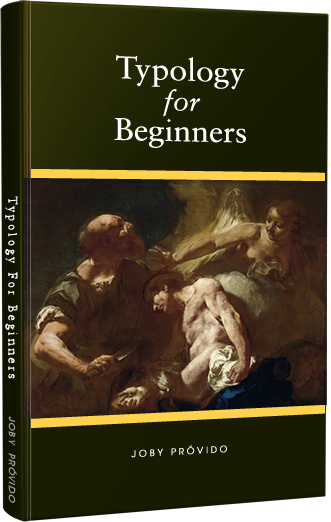
Typology for Beginners
A Catholic Perspective on understanding the New Testament through the Old Testament
First-century Jews converted to Christianity in droves because of the way the New Testament was written to show Jesus was the Messiah promised by the Old Testament. We also learn about how Mary is the New Eve and the Ark of the Covenant in the way the writers portray her.
Through typology, the patterns that connect the Old and New Testaments make the Bible stories more accessible so that one becomes excited to read Sacred Scripture again.
Get your copy now either in Hardbound, Paperback, or Kindle
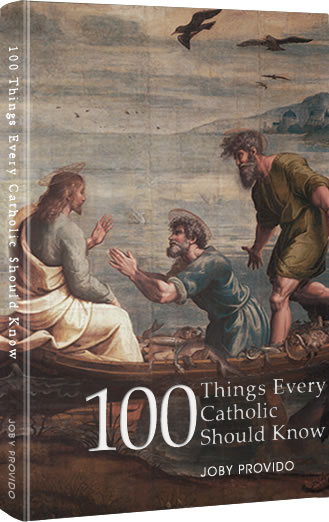
100 Things Every Catholic Should Know
Whether or not you are new to the Catholic Church, or struggling, or lapsed, or dynamically involved, this book will enlighten you with the essentials of the Faith that have been handed down to us by the apostles.
Each of the 100 topics is easy to read and distilled into bite-sized portions. Through cross-referencing, the book also shows how the topics are interrelated. Those who are new to the Faith will find this book an edifying handy reference, and those who have simply forgotten will find it a great review material that might spark a new love for God and religion.
Get your copy now either in Hardbound, Paperback, or Kindle
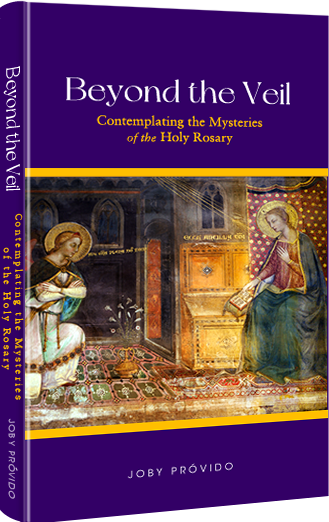
Beyond the Veil
Contemplating the Mysteries of the Holy Rosary
Prayer giants like Pope St. John Paul II, Pope Paul VI, Bl. Archbishop Fulton Sheen, and Bishop Robert Baron advocate that we contemplate on the mysteries of the rosary while we say the vocal prayers. Unfortunately, there are not many books that teach us how to do this. Beyond the Veil comes to the rescue by suggesting seven ways we can pray the rosary the way it was intended.
The larger part of the book offers mental images for each of the mysteries we can use in our contemplation, for how can we imagine the scenes in the rosary if we don't know about them?
Get your copy now either in Hardbound, Paperback, or Kindle

A Sky Full of Stars
Know Our Lady through her Titles in the Litany
The Church helps us understand who Mary is by honoring her with different titles in the Litany of the Blessed Virgin Mary. Unfortunately, over time and difference of culture, we might not grasp what it is the Church is ascribing to her and lose that opportinity to get to know her.
In A Sky Full of Stars, each title of the Litany is explained so we get know Mary more and fall in love with her all over again.
Get your copy now either in Hardbound, Paperback, or Kindle


